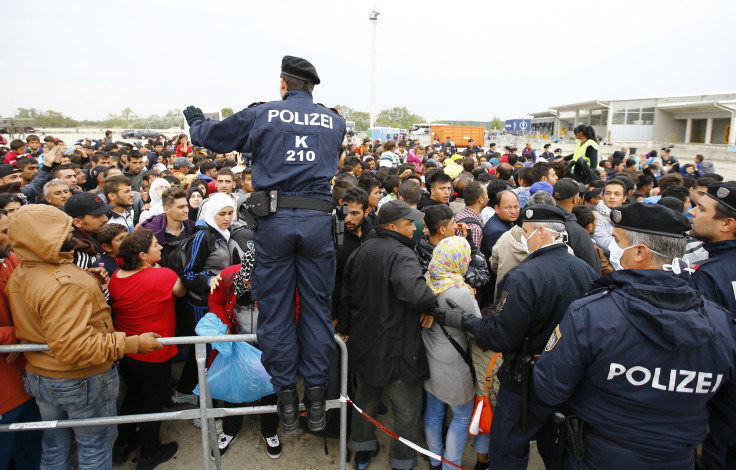EU Refugee Crisis 2015: No Mandatory Quota Plan To Relocate 120,000 People, Reports Say

European Union officials are set to agree to a plan that would relocate a further 120,000 refugees, but the exact details of the proposal are unclear and it reportedly does not make the commitment to take in people mandatory. Draft conclusions for a meeting of EU interior ministers Monday suggest many details of the plan are open to discussion, Reuters reported.
The draft, if approved, would accept that the EU would distribute a further 120,000 refugees around the bloc, as well as agreeing to an earlier plan to relocate 40,000 people seeking asylum from Italy and Greece. But mandatory national quotas would not be a part of the plan, after pushback from Eastern European states, and Hungary in particular. The current draft would allow for further discussion about how and where to relocate refugees ahead of another ministerial meeting scheduled for Oct. 8.
"The council has committed to relocate an additional 120,000 persons in need of international protection from member states exposed to massive migratory flows," the draft reads, according to Reuters.
While the draft is likely to be approved, there are no mentions of making actions mandatory, a significant omission, according to a report from the Financial Times. European Commission President Jean-Claude Juncker had previously called for "swift, determined and comprehensive" action on the refugee crisis that would include mandatory quotas for the 28-nation bloc, according to USA Today.
The draft conclusions, leaked Monday, allow for concessions in carrying out the commitment to relocate further refugees. "Work will be carried out as a matter of priority on the preparation of a formal decisions to implement this commitment, with due regard to the flexibility that could be needed by member states in the implementation of the decision, in particular to accommodate unforeseen developments," the communiqué read, according to a tweet from Financial Times reporter Peter Speigel, who suggested the passage "seems to significantly water down" the commitment.
This part of leaked #EU migrant communiqué seems to significantly water down commitment to relocate 120,000 refugees pic.twitter.com/xy38QHM9ku
— Peter Spiegel (@SpiegelPeter) September 14, 2015
Hundreds of thousands of refugees from Syria, Iraq, Afghanistan and beyond, many fleeing conflict, have flooded into the European Union this year. Monday's draft included language that would tighten external EU borders, implement screenings of arrivals and allow for deportation of those who are deemed not to need refugee status, Reuters reported.
© Copyright IBTimes 2024. All rights reserved.












